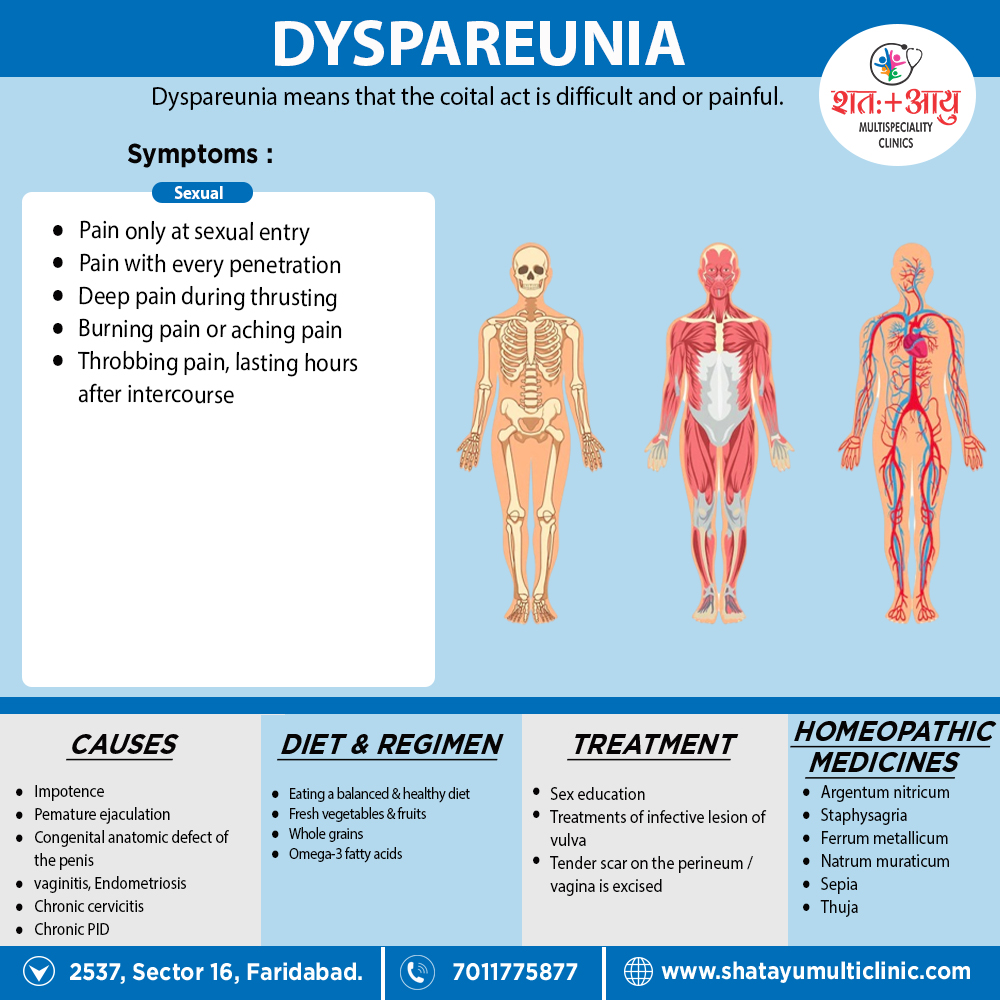The two are most often interchangeable.
In general, Dyspareunia is the most common sexual dysfunction.[1]

Dyspareunia means that the coital act is difficult and or painful. Additionally, Apareunia is inability to practice coitus.[1]
The two are most often interchangeable.
In general, Dyspareunia is the most common sexual dysfunction.[1]
Male causes:
The following male factors are responsible i.e.:
Female causes:
Depending upon the site of pain, the dyspareunia may either i.e.:
Superficial: In detail, Any lesion of the lower part of the labia minora or around the fourchette may be responsible
Vaginal: Burning pain along the barrel of vagina either during or following intercourse is the presenting complaint.
Common causes of Dyspareunia are i.e.:
Deep: The patient experiences pain while the penis penetrates deep into the vagina. As the vagina is insensitive to pain, deep dyspareunia usually results from pathology of paravaginal tissues or other pelvic organs.
Such lesions are:
A medical evaluation for dyspareunia usually consists of i.e.:
A thorough medical history.
Moreover, Your doctor might ask when your pain began, where it hurts, how it feels and if it happens with every sexual partner also every sexual position.
Your doctor might also inquire about your sexual history, surgical history and childbirth.[1]
Homeopathy treats the person as a whole. It means that homeopathic treatment focuses on the patient as a person, as well as his pathological condition. The homeopathic medicines selected after a full individualizing examination and case-analysis.
which includes
A miasmatic tendency (predisposition/susceptibility) also often taken into account for the treatment of chronic conditions.
A homeopathy doctor tries to treat more than just the presenting symptoms. The focus is usually on what caused the disease condition? Why ‘this patient’ is sick ‘this way’?.
The disease diagnosis is important but in homeopathy, the cause of disease not just probed to the level of bacteria and viruses. Other factors like mental, emotional and physical stress that could predispose a person to illness also looked for. No a days, even modern medicine also considers a large number of diseases as psychosomatic. The correct homeopathy remedy tries to correct this disease predisposition.
The focus is not on curing the disease but to cure the person who is sick, to restore the health. If a disease pathology not very advanced, homeopathy remedies do give a hope for cure but even in incurable cases, the quality of life can greatly improved with homeopathic medicines.
The homeopathic remedies (medicines) given below indicate the therapeutic affinity but this is not a complete and definite guide to the homeopathy treatment of this condition. The symptoms listed against each homeopathic remedy may not be directly related to this disease because in homeopathy general symptoms and constitutional indications also taken into account for selecting a remedy.
Dyspareunia means that the coital act is difficult and or painful.
References: